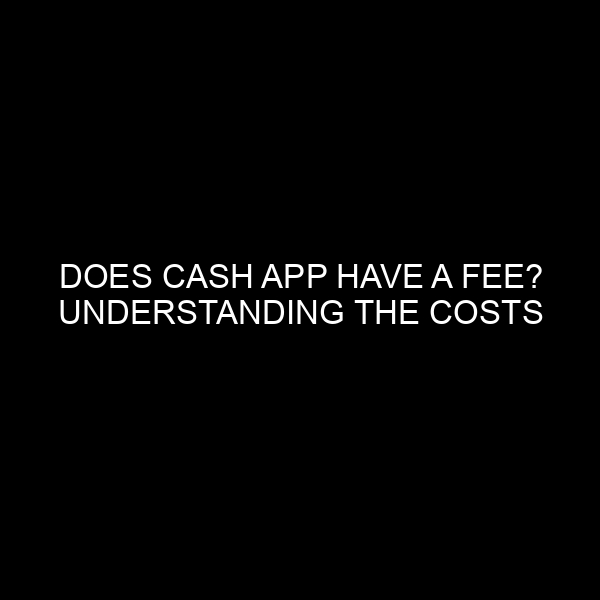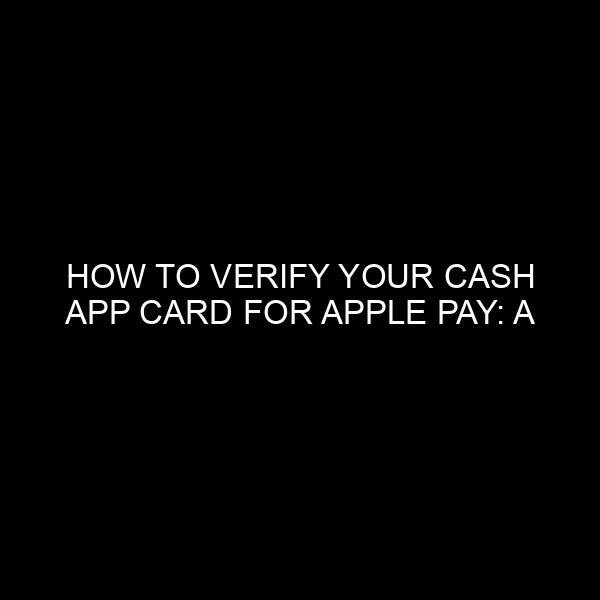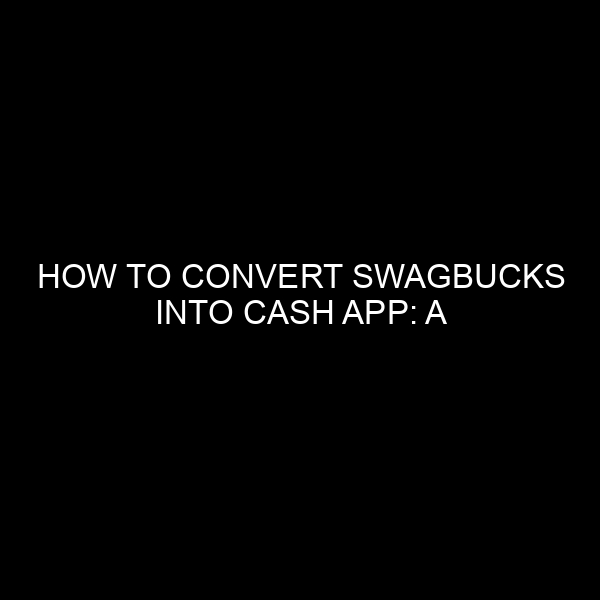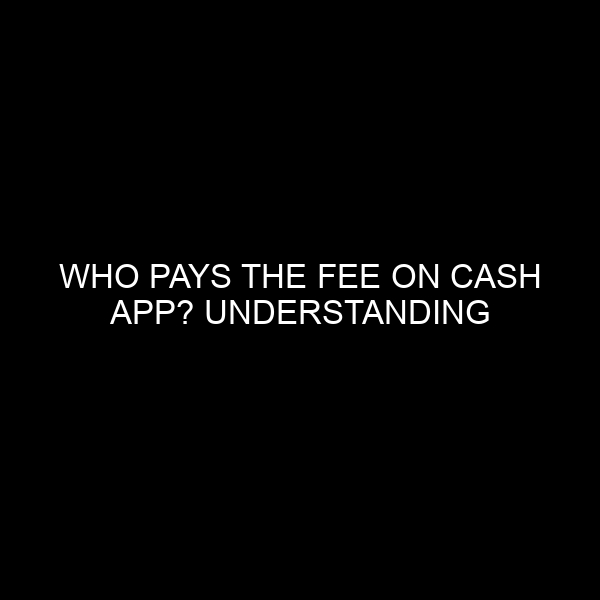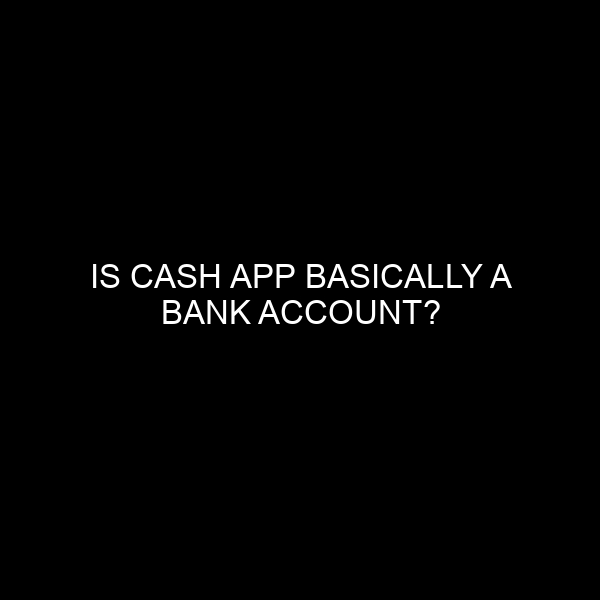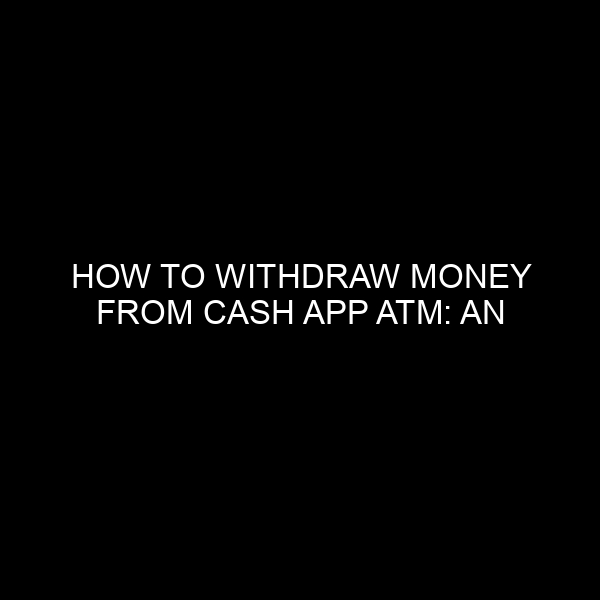Does Cash App Have a Fee? Understanding the Costs
In today’s digital age, peer-to-peer payment platforms have gained significant traction, facilitating transactions between users in real-time. One of the most popular platforms is Cash App, a service developed by Square, Inc. With its sleek interface and user-friendly design, Cash App has become a go-to for many individuals seeking a quick and straightforward method to send and receive money. However, as with most financial services, it’s essential to understand any associated costs. Does Cash App have a fee? Let’s delve deep into the financial mechanics of this app.
Introduction to Cash App
Before we dissect the fee structure, it’s crucial to understand Cash App’s framework. Founded by Jack Dorsey and Jim McKelvey in 2009, Square, Inc. developed Cash App as a means to disrupt the conventional banking paradigm. This app does not merely offer peer-to-peer money transfers; it provides a variety of financial services, including a way for users to invest in stocks and cryptocurrencies. With its increasing functionality, understanding the pricing model is paramount for both casual users and those who integrate the app more significantly into their financial activities.
Basic Transfers and the No-Fee Structure
At its core, Cash App allows users to send and receive money. For basic personal use, sending money from one Cash App account to another is typically free. However, the key lies in how you fund these transactions:
- Debit Card or Bank Account: If you fund your Cash App account using a linked debit card or bank account, there’s no fee for sending money.
- Credit Cards: Utilizing a credit card to fund a transfer incurs a 3% fee of the total amount sent.
Instant Transfers and Associated Costs
While receiving money into your Cash App account is free, transferring it out can sometimes involve a fee:
- Standard Transfers: If you’re willing to wait a day or two for the funds to move from your Cash App account to a linked bank account, this process is free.
- Instant Transfers: If you want the money immediately (within minutes), there’s a 1.5% fee.
Special Services and Their Fees
Cash App has broadened its service range, offering functionalities akin to those found in mainstream banking:
- Cash Card: This is a customizable debit card linked to your Cash App balance. While the card itself and most of its features are free, ATMs might charge a fee if you withdraw more than $7 in a month without having at least $300 in direct deposits.
- Bitcoin Purchases: Interested in cryptocurrency? Cash App allows Bitcoin trading. There’s a two-fold cost involved: a service fee for each transaction and a potential additional fee determined by price volatility across U.S. exchanges.
Business Accounts and Receiving Money
While many use Cash App for personal transactions, some businesses opt to receive payments via this platform. Business accounts are subjected to a 2.75% fee for each money received.
Hidden Costs: Beware of Scams
One of the “costs” often not discussed in explicit terms is the potential for scams. Given the popularity of the Cash App, it has unfortunately become a hub for fraudsters. Ensure you only transfer money to trusted individuals, and always double-check the recipient details. Falling prey to scams might not just cost a transaction fee, but your entire balance or more if linked to a bank account.
Conclusion
To answer the initial question succinctly: Does Cash App have a fee? It depends on the service and urgency. Regular transactions, funded by a linked bank account or debit card, are free. However, immediacy, certain functionalities, and business use might involve costs. As with any financial service, users are advised to thoroughly understand the fee structure before transacting. It ensures not just the efficient use of the app but also helps in managing finances in a cost-effective manner.
In the era of digital banking, platforms like Cash App provide immense convenience. Yet, understanding the underlying cost structure is crucial. As someone with a background in the financial market and banking industry, I recommend always reading the fine print and staying updated with fee changes. Informed decisions are, after all, the best decisions.
